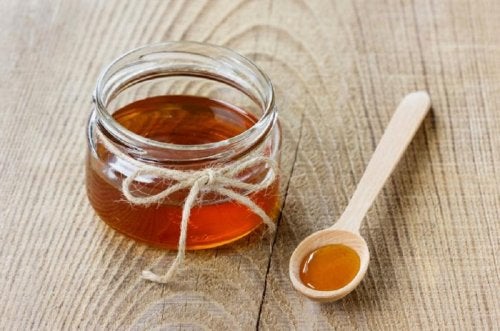
ENJOY THE SWEETNESS OF LIFE
Did you know the honey bee is a symbol of industry, resourcefulness and prosperity? These tiny creatures demonstrate the success and satisfaction found in working together harmoniously to enjoy the sweetness of life (honey). Early farmers believed the bees hummed in honor of the Christ Child on the first Christmas.
Is honey good for you – well, at 64 calories per tablespoon, it isn’t exactly low-cal. But the benefits far outweigh the high sugar content. Packed with vitamins, minerals, amino acids and antioxidants, honey’s nutritional values vary based on the nectar source. Generally the darker the honey, the greater the antioxidant punch. Its antibacterial, antiviral, anti-inflammatory and antifungal properties make it a must-have natural remedy for any household. Now, before you go rushing off to the kitchen, keep in mind that most supermarket honey is processed and devoid of any nutritional or medicinal value. Local, raw, unprocessed honey is the golden ticket.
A spoonful of honey to ease nighttime cough proved more effective than dextromethorphan and diphenhydraminein in a study involving 139 children. It coats the throat and soothes irritated nerve endings.

A spoonful of honey before bed could have your counting sheep sooner than later. Honey causes a rose in insulin which triggers the release of serotonin, a neurotransmitter linked to mood and happiness. Serotonin is converted to melatonin, a chemical that regulates sleep.
Scalp got you scratching? Lather up with a bit of honey. Participants in a 2001 study published by the European Journal of Medical Research applied a solution of honey and warm water to flaky or itchy areas of the scalp then left it for three hours before rinsing. After just one week of every-other-day applications, dandruff sufferers reported a reduction in itching and scaling. Within a few weeks of the regimen, skin lesions had completely healed and hair loss was significantly reduced.
Apply a coating of sweet stuff to wounds and burns, then bandage. Change the dressing daily until the wound has closed. “Honey dressings” for burns, scrapes and surgical wounds have proven effective in speeding up the healing process. The antibacterial properties of honey, coupled with naturally occurring hydrogen peroxide, offer up an effective healing cocktail.
A spoonful of honey taken after one too many drinks may be what your liver needs. Sugars in honey help to speed up alcohol oxidation, ridding toxins from your body fast. Drinking lots of water, in addition to the honey, helps too.
Raw, unprocessed honey applied as a mask to acne prone areas and allowed to sit for 15 to 20 minutes before rinsing may help reduce inflammation and redness.
Honey’s anti-inflammatory properties may help with itch relief. Try a drop on an irritating bite.
WARNING: The American Academy of Pediatrics cautions parents of children under the age of 12 months. Their underdeveloped immune systems leave them vulnerable to botulism, a serious form of food poisoning. Dirt and dust containing botulism bacteria spores can creep into honey and wreak havoc on little tummies. Best steer clear until their first birthday.